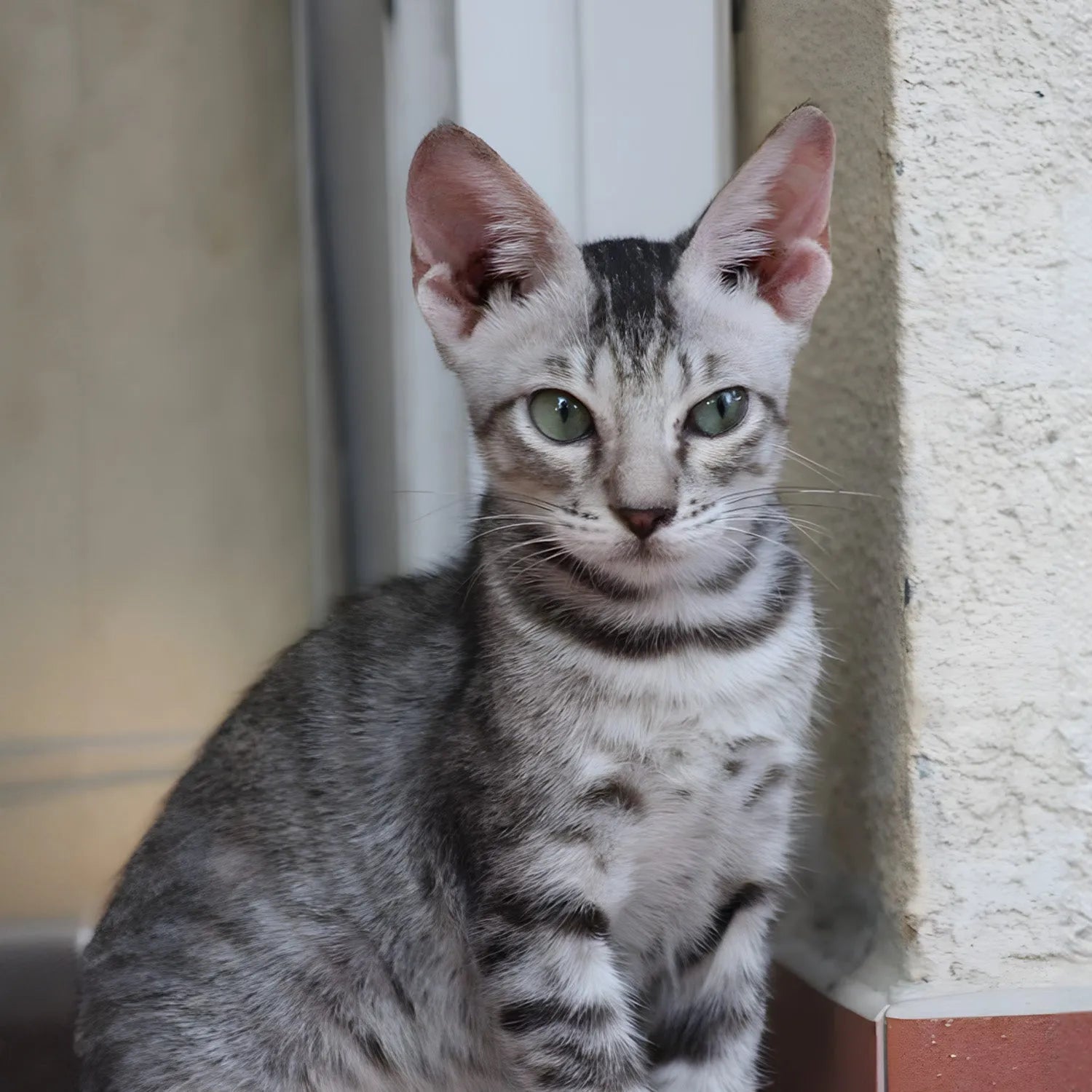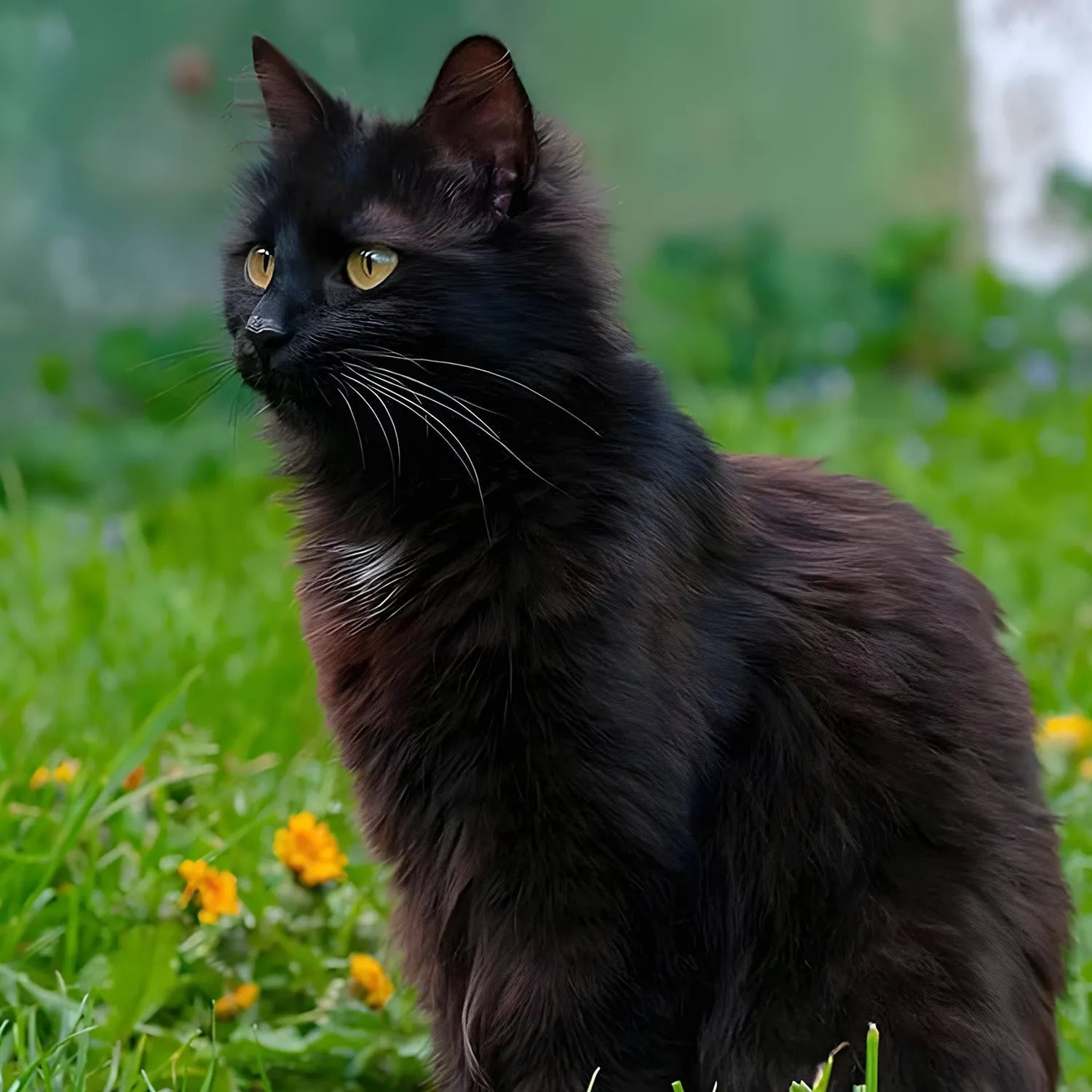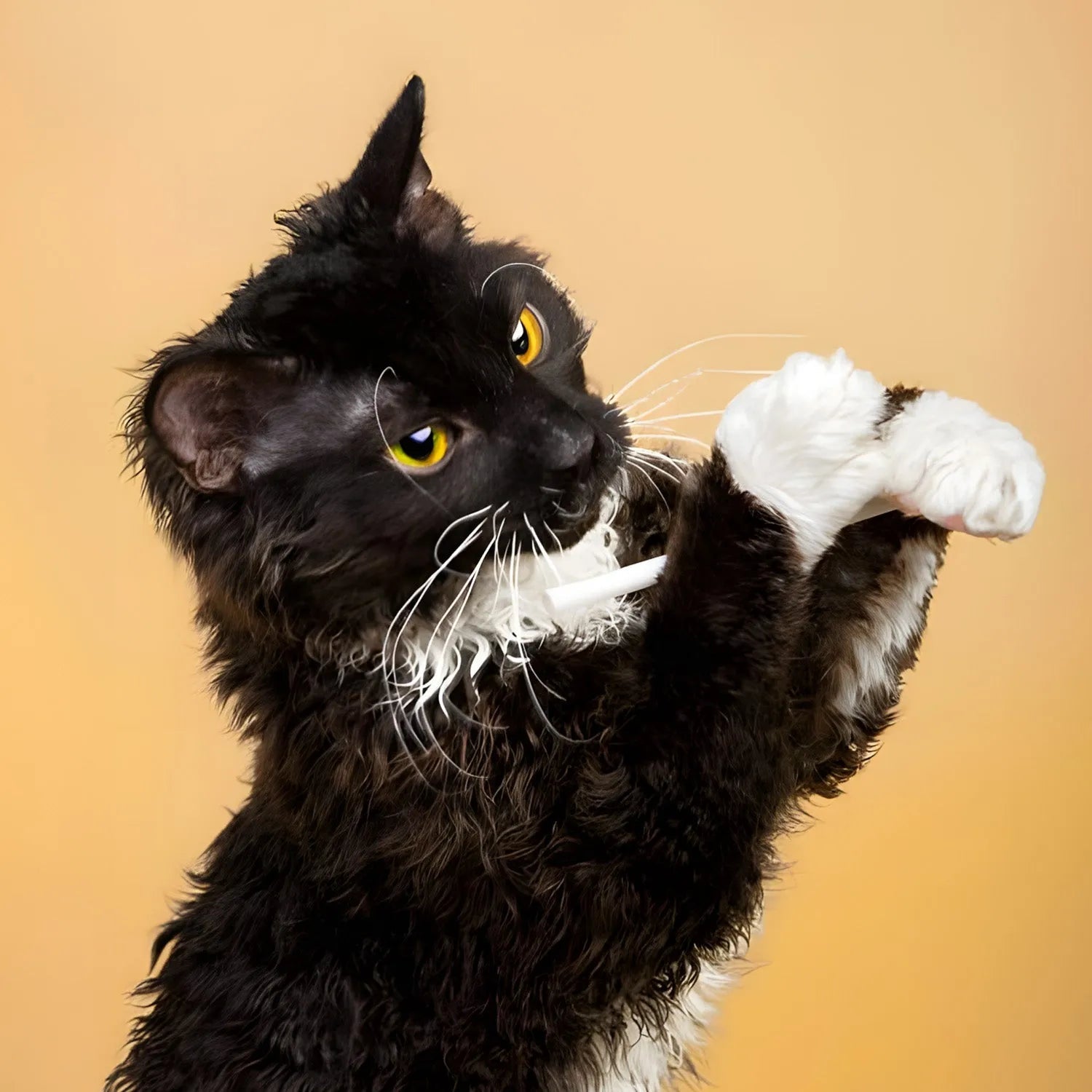Turkish Angora: The Elegant and Graceful Feline
Introduction
The Turkish Angora cat is one of the most elegant and graceful feline breeds, known for its silky, flowing coat and vibrant personality. Hailing from Turkey, this breed has a long history of being treasured for its beauty and charm. But beyond their stunning appearance, Turkish Angoras are also known for their playful, affectionate, and intelligent nature. These cats form strong bonds with their human companions, making them wonderful pets for those looking for a lively yet loving feline friend. In this blog, we’ll explore the Turkish Angora cat’s lifestyle, behavior, grooming needs, and how it interacts with humans and other pets.
Ratings (1-5)
-
Environmental Adaptability: 4
-
Food Consumption: 3
-
Need for Companionship: 5
-
Trainability: 5
-
Tolerance of Children: 5
-
Ease of Domestication: 5
History and Origins
The Turkish Angora is one of the oldest natural cat breeds, with its origins dating back to the mountainous regions of Turkey. The breed is named after the city of Ankara (formerly known as Angora), where it was prized for its beauty and grace. Turkish Angoras were considered a national treasure in Turkey and were often kept by royalty and high society.
In the 17th century, Turkish Angoras were brought to Europe, where they quickly gained popularity due to their striking appearance. However, the breed’s numbers began to decline as the Persian cat gained popularity. By the mid-20th century, efforts were made to preserve the Turkish Angora breed in Turkey, and the breed was officially recognized by The International Cat Association (TICA) and the Cat Fanciers’ Association (CFA).
Today, the Turkish Angora is cherished for its combination of elegance, intelligence, and affection.
Physical Characteristics and Colors
The Turkish Angora is a medium-sized cat with a slender, athletic build. Their bodies are long and graceful, with fine bones and a silky, flowing coat. Despite their delicate appearance, Turkish Angoras are strong and agile cats, capable of impressive acrobatic feats. Their heads are wedge-shaped, with large, almond-shaped eyes that come in various colors, including blue, green, amber, or odd-eyed (one blue and one green/amber).
One of the most defining features of the Turkish Angora is its long, silky coat, which flows smoothly over the cat’s body. Despite its luxurious appearance, the coat is surprisingly easy to care for, as it does not mat easily. Turkish Angoras come in a wide range of colors and patterns, although white is the most traditional and recognizable color for the breed.
Common coat colors include:
-
White: The classic color for the Turkish Angora, with a pure, snowy white coat.
-
Black: A sleek, shiny black coat that adds to the cat’s elegance.
-
Blue: A soft, bluish-gray color that gives the cat a regal appearance.
-
Tabby: A variety of tabby patterns, including classic, mackerel, and spotted.
-
Tortoiseshell: A mix of black, orange, and cream patches.
Lifestyle and Behavior
Turkish Angoras are known for their lively, playful, and affectionate personalities. These cats are full of energy and love to explore their surroundings, often climbing to high perches to observe the world around them. Turkish Angoras are highly active and agile, and they enjoy games that challenge their physical abilities, such as chasing toys, jumping, or climbing cat trees.
Despite their playful nature, Turkish Angoras are also deeply affectionate and form strong bonds with their human companions. These cats are known for being "people-oriented" and will often follow their owners from room to room, always curious and eager to be involved in whatever is going on. Turkish Angoras thrive on interaction and enjoy being part of family activities.
While they are social and affectionate, Turkish Angoras can also be independent and enjoy spending time observing their environment or lounging in a sunny spot. They are not overly demanding of attention, but they do appreciate regular interaction and affection from their human family members.
Trainability and Intelligence
Turkish Angoras are highly intelligent cats and can be trained to follow commands, perform tricks, and even walk on a leash. Their playful and curious nature makes them eager to engage in training sessions, and they respond well to positive reinforcement techniques, such as treats and praise.
Because of their intelligence, Turkish Angoras need regular mental stimulation to prevent boredom. Puzzle toys, interactive feeders, and games that challenge their problem-solving skills are excellent ways to keep their minds sharp. These cats enjoy learning new tricks and commands, and they can be taught to fetch, open doors, or navigate obstacle courses.
Training sessions with Turkish Angoras should be fun and interactive, as they thrive on attention and enjoy showing off their abilities. Their intelligence and agility make them excellent candidates for more advanced training, such as leash walking or more complex tricks.
Social Behavior and Human Interaction
Turkish Angora cats are incredibly social and affectionate animals. They form strong bonds with their human family members and are known for being loyal, loving, and always eager to be near their owners. These cats are not shy about seeking attention and will often nuzzle, paw, or vocalize when they want to be petted or played with.
Turkish Angoras thrive on human interaction and do not like being left alone for long periods. They are happiest in homes where someone is around for most of the day, or they have other pets to keep them company. These cats are known for their love of physical contact and will often curl up in their owner’s lap or snuggle beside them in bed.
Their social nature also extends to visitors and strangers. Turkish Angoras are generally friendly and outgoing, greeting guests with curiosity and enthusiasm. They are not shy or reserved, making them excellent companions for homes with a lot of activity or visitors.
Compatibility with Children and Other Pets
Turkish Angora cats are excellent companions for children due to their playful and tolerant nature. They enjoy interactive play and are generally patient with children’s antics, provided they are treated with respect. Turkish Angoras are gentle and affectionate, making them ideal pets for families with young kids who want an active and loving companion.
In addition to being good with children, Turkish Angoras also tend to get along well with other pets, including dogs. Their confident and friendly nature allows them to integrate well into multi-pet households, and they often enjoy the company of other animals. Proper introductions are important, but Turkish Angora cats are generally accepting of new furry family members and are known for their ability to get along with both cats and dogs.
Grooming and Care
Despite their long, silky coats, Turkish Angoras are surprisingly low-maintenance when it comes to grooming. Their fur does not mat easily, so weekly brushing is usually sufficient to remove loose hairs and keep their coat looking shiny and healthy. During shedding seasons in the spring and fall, more frequent brushing may be necessary to manage their coat.
In addition to regular brushing, Turkish Angora cats require routine dental care, ear cleaning, and nail trimming to maintain their overall health. Their low-maintenance grooming needs make them ideal for owners who want a beautiful yet easy-to-care-for cat.
Health and Lifespan
Turkish Angora cats are generally healthy, but like all breeds, they can be prone to certain genetic health conditions. Some common health concerns include hypertrophic cardiomyopathy (HCM), a heart condition, and deafness, particularly in white-coated, blue-eyed individuals. Responsible breeders screen for these conditions to reduce the risk of passing them on to future generations.
Regular veterinary check-ups, a balanced diet, and maintaining a healthy weight are essential to keeping your Turkish Angora cat in good health. With proper care, Turkish Angora cats typically live 12-16 years or more, making them long-term companions for any family.
Environmental Adaptability
Turkish Angora cats are adaptable and can thrive in a variety of living environments, whether in a small apartment or a larger home. They are particularly well-suited to indoor living, where they can enjoy a calm and predictable routine. Because of their social and affectionate nature, Turkish Angora cats do best in homes where they have plenty of interaction with their human family members or other pets.
Because of their playful and curious nature, Turkish Angora cats appreciate having access to climbing trees, interactive toys, and plenty of opportunities for play. While they can adapt to most living situations, they are happiest in environments where they receive plenty of attention and stimulation.
Feeding Requirements
A balanced diet is crucial for maintaining the health and energy levels of Turkish Angora cats. High-quality cat food that is rich in protein is recommended to support their muscular build and overall well-being. Fresh water should always be available. Because Turkish Angoras are active and energetic, it
’s important to monitor their food intake to ensure they are receiving the proper nutrition to support their activity levels.
Consult your veterinarian for specific dietary recommendations based on your cat's age, weight, and health needs. Regular play sessions and activities that encourage physical movement can also help keep your Turkish Angora healthy and fit.
Conclusion
The Turkish Angora is a stunning, playful, and affectionate breed that offers a perfect combination of elegance, intelligence, and loving companionship. Their strong bonds with their human companions, combined with their active and outgoing personalities, make them wonderful pets for families, individuals, or anyone looking for a lively and loving cat. If you're searching for a feline friend that will bring grace, energy, and affection to your home, the Turkish Angora may be the perfect fit.
For more information about other cat breeds and pet care tips, stay tuned to our blog!
References:
-
Davis, M. (2021). "The Graceful and Affectionate Turkish Angora Cat." *Journal of Feline Studies*, 35(3), 215-230.
-
Thompson, A. (2020). "Caring for Your Turkish Angora: A Comprehensive Guide." *Cat Lover’s Magazine*, July issue, pp. 25-33.
-
Harris, E. (2019). "Health and Wellness in Turkish Angora Cats." *Veterinary Journal*, 79(2), 123-137.


